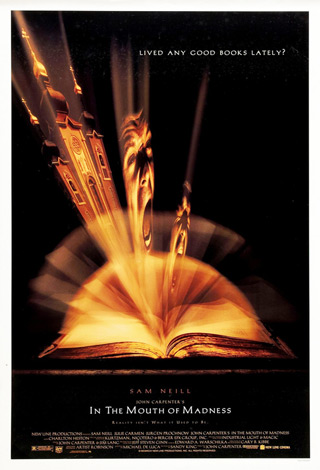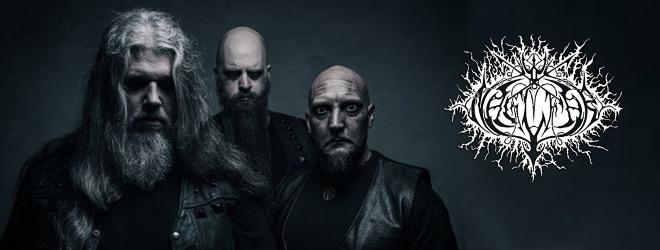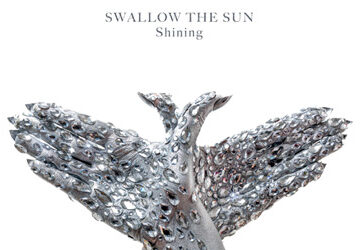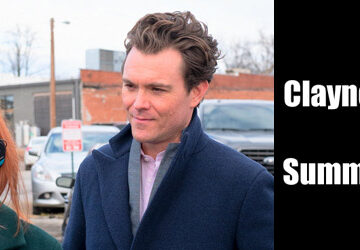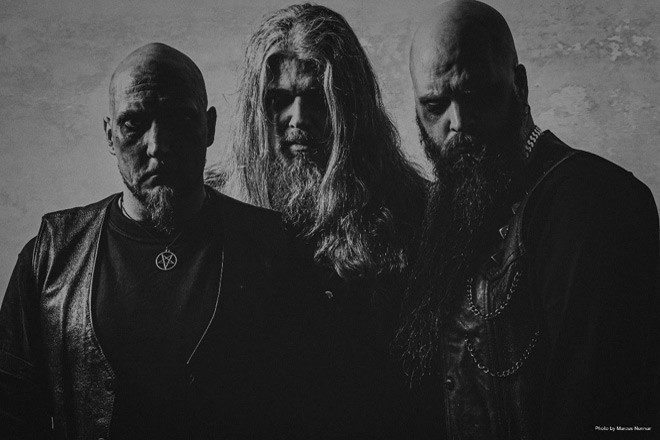
The Swedish Black Metal institution just released their seventh album, Cerecloth, on Century Media Records, their first in eight years, and it is an incredibly potent slab of fury and high-quality riffing. Recently, the accomplished guitarist sat down to chat about the album, the writing process, plus a whole lot more.
Cryptic Rock – Naglfar has been in existence since 1992. When you began the band, did you have any idea that it would still be going strong all these years later?
Andreas Nilsson – I’m surprised that I’m still doing this, because I always knew I would be creating and writing music. I have known since I was young, in my early teens, that this is something that won’t go away. But with that said, I wouldn’t maybe have been sure that we, meaning Kris and Marcus, would still be doing this after all this time. It gives me a sense of pride, I would say. I’m proud that we’re still doing this after all these years.
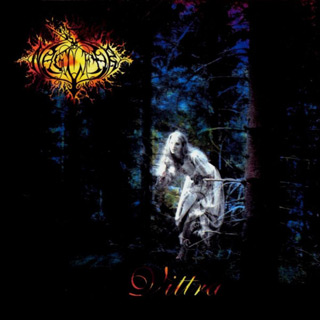
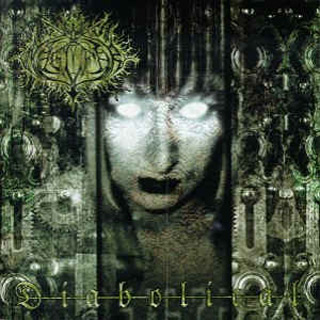
Cryptic Rock – As you should be, for sure. It is pretty remarkable to be able to keep a band going this long with such consistently strong results. So your latest album Cerecloth is quite vicious. It is an incredibly well-done album, great songs with relentless riffing. The title-track, “Horns,” “Vortex of Negativity,” and “Last Breath of Yggdrasil,” in particular, are some of the best material you guys have written. Can you tell us a little about the writing process of the record, how the music took shape, and did eight years between albums make you guys hungrier creatively?
Andreas Nilsson – Well, I don’t know if hungry is the correct word. The drive is always there to write the music, but the process was basically different this time around for us. Usually from the previous albums, we have always been doing it such that we meet up at Marcus’ home studio, and then we sit there and just work out the material, usually writing together. But after Teras (2012), both me and Kris got kids, and we had job situations. We discovered that it was getting more and more difficult to find the time to meet up and do it in that way.
I think it made the process take a lot longer before we just realized that we had to change the work. Now, me and Marcus are working from our respective homes, writing material. We meet up and start the process of changing them around, basically. I guess that’s the difference now. We’re working more on our own before meeting up on separate occasions.
CrypticRock – You are making it work, and that is what counts. Sometimes fans and journalists look at extensive time elapsing between albums, assuming that it means the band wasn’t feeling inspired. However, perhaps we forget that when you have families and jobs, it can impede the cycle of writing albums and touring constantly.
Andreas Nilsson – Right. But, since we are not doing this for a living, we don’t have that same pressure on us to work on the clock. Also, another reason for the delay was because we had fulfilled our deal with Century Media, so we felt like we were in no rush, basically. That time just went by and then we realized, shit. It was six years ago now, so we should start something, get to work, basically. Then, two years ago, Century Media reached out and told us, “You guys, you know we are interested in still working with you if you just tell us you have an album.” Yeah, so that’s what happened. That’s why it’s not taking 10 years.
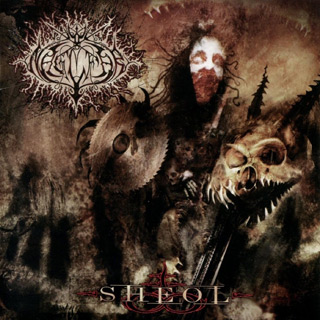
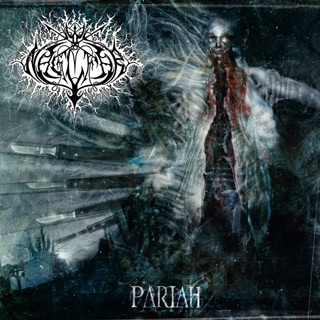
Cryptic Rock – Naglfar has always remained very solidly true to its artistic vision; you have never once bowed to a trend or any outside pressure. When looking at your history, let’s say between 2000 and 2010, Naglfar released five albums.
It was a very productive decade, and it was also the same period that some of your Swedish peers, who shall remain nameless, started to move towards a more commercial, accessible, trendy sound. You guys never ever did that. Was there ever an atmosphere of pressure around you to become more melodic to sell more records or get bigger tours? Also, is it more challenging to keep your sound fresh when you are writing within a certain framework – in this case the melodic yet extreme Black Metal Naglfar write in – than it is to chase a clean, poppy sound?
Andreas Nilsson – The thing is we never got that pressure from our label, so to speak. If we’re going to see it in one way, we did the very melodic thing with Vittra, and then we switched it up and turned more aggressive. I think if we were going to go that way, we would have done it then, but that wasn’t ever our goal. We don’t do this to gain the fame; it was never the main issue. That was never the main priority, but it was always about writing music that we ourselves wanted to listen to.
I wasn’t listening to that kind of (Pop or melodic) music, so I wasn’t interested in playing it either. The challenging part is, of course, that I write music in a specific way, and it is difficult to make it sound interesting today. But in the end, as long as I see it happening, I can still do it. I would never release something that I did not like myself, just because of the sake of it. I’d rather put the band to rest. It gets harder. You get inspired by other things, but I think that the extreme part will always be there. I can’t see myself playing any other kind of music, actually.
Cryptic Rock – That is a very good thing. Everything seems to have come full circle in a sense. Your stateside performance at 2019’s Maryland Deathfest was superb. There was a great deal of excitement that Naglfar played, partly due to the scarcity of American appearances, but also because you display more energy and skill than bands half your age.
Moving on, lyrically, Naglfar has always maintained a lot of mystery. One cannot easily determine the philosophical stance of the band. Can you talk a bit about the lyrical angles going on within Cerecloth?
Andreas Nilsson – Yeah, sure. I would say that Kris (Olivius) and I write most of the lyrics. We are different persons. How should I put it? The lyrical aspects are usually about these topics that would be considered negative, but what’s always been fascinating to us is usually about death. The common denominator of the whole album deals with death in all different shapes and sizes. It’s not that strange – it’s a big part of life. It’s something that’s always been fascinating.
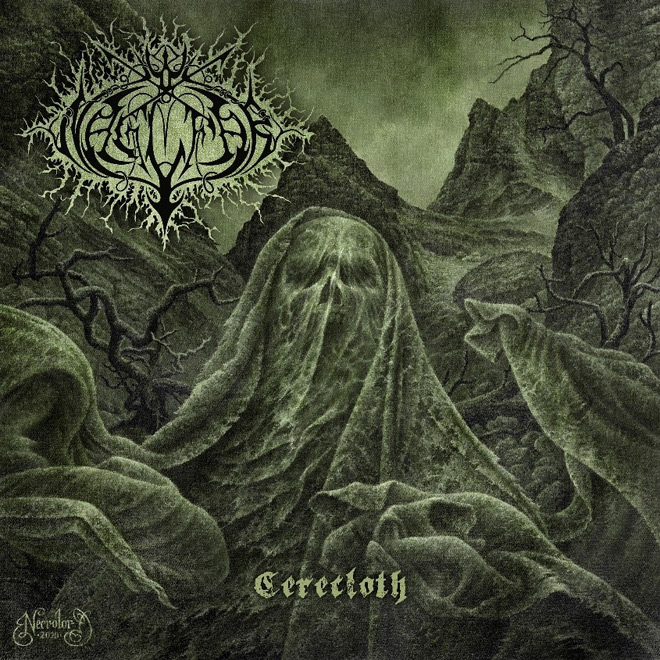
CrypticRock – Definitely something we are all headed towards. Obviously, with art as with everything else, the tendency of humans is to look at something and make a very quick judgment about what it’s about; like Watain is Satanic or Dark Tranquility is not Satanic. People like to have those delineations, but with Naglfar, you can’t really put your finger on, “Oh, well, this is what their lyrics are going to be about.” That is positive and it is interesting to have that little bit of mystery.
Andreas Nilsson – We don’t try to put a label on it. I’m going to be boring and go with the typical answer, that I prefer if the listener reads the lyrics and makes their own mind up. That is because the lyrics always have a special meaning for me, but I find I don’t want to tell people how they should react to them. It’s more satisfying for me if they get to interpret them on their own. There are anti-Christian themes. There are, to some extent, some Satanic themes of the general distrust towards the human race. Then again, it’s also we are three different persons with three different tasks, if that makes sense, so it’s going to be quite a broad brush, depending on who’s writing.
Cryptic Rock – It is great to incorporate the perspectives of multiple band members, and keeps things interesting. This is far less intriguing than lyrics, but we should address the global health crisis. Do you fear a deeper, worldwide economic collapse will follow this lockdown, or do you think that music, underground music, will be able to bounce back, and there will be tours again and festivals again? There are many different opinions going around. America is a very fear-driven country; the media is all about fear. How are you guys perceiving what is going to happen after this?
Andreas Nilsson – Well, it’s hard, because this is unheard of. There is also a lot of different opinions and ideas about what is going to happen. Some are worried that people are going to have less money. Every band is going to go back on tour, but there is just so many people that will be able to go to the shows. A lot of the small clubs and stuff are going to not be able to make it financially through this. I haven’t really dwelt on that yet – I think it’s no point in speculating. We can only hope. I hope the small ones come through.
I’m sure there’s going to be a live scene after this, and a music scene. It cannot be killed, but I have no idea of what shape or form it’s going to be in. I think it’s too soon to speculate. It can go either way, but I just don’t know when. That’s how I see it. I think we’re going to be back to business, but how long it’s going to take . . .

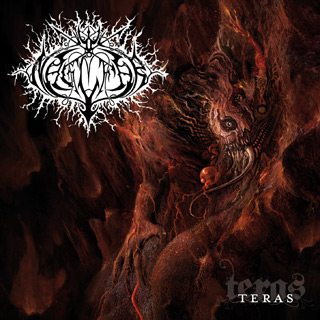
Cryptic Rock – . . .no one can say. Many of us are trying stay positive with it and not be too nuts about it.
Andreas Nilsson – I think the thing to do right now, as you are doing, support the bands, and if you like … People seem to forget about all the people around the bands. It’s not just having to buy the merch, but there’s a lot of clubs, there are promoters. They are depending on people to keep their tickets, so that’s one thing I think is important. Not only to buy merch and support the bands, but try to make sure the rest is covered as well. That is if you have the opportunity, because this is putting people in some rough spots financially all over the world.
Cryptic Rock – It most certainly is. Last question. If you are a fan of Horror films, what are some of your favorites?
Andreas Nilsson – Oh, let’s see. I’ll say I have a lot of kids in the house now, so I don’t get to see as many Horror films as I would like. However, there is a Netflix series that blew me away, The Haunting of Hill House. Other than that, there’s this English one called The Descent (2005), where the characters are trapped in a cave. I’m claustrophobic, so it killed me. I like some older stuff, like In the Mouth of Madness (1994), Event Horizon (1997), among other things.
I am not too much about those Saw-style movies, I’m more into the supernatural part of the Horror genre. The more visual torture things I’m not into too much. I think I was seven the first time I saw Jaws (1975). After that, I didn’t take a swim for 10 years, but it was a good story.
